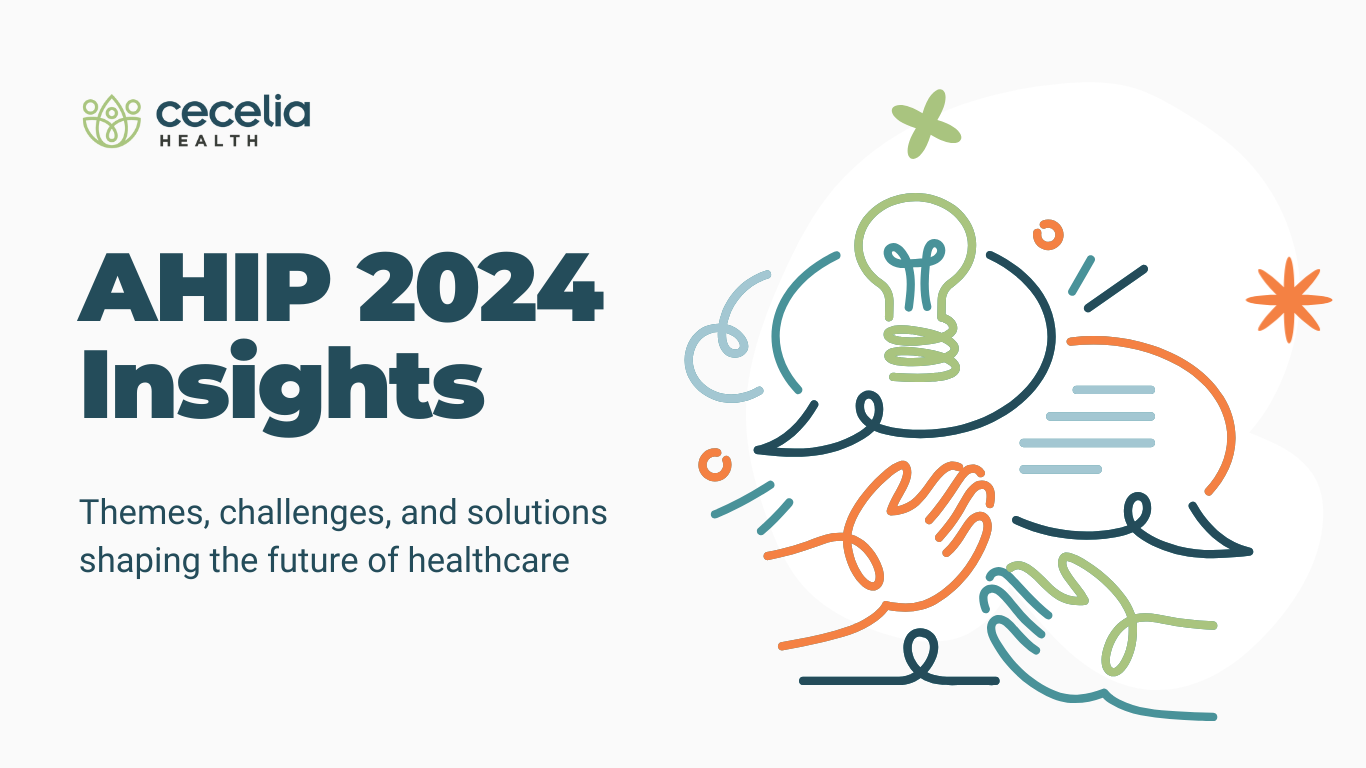The AHIP 2024 conference highlighted several critical themes, challenges, and insights shaping the future of healthcare. We keyed into topics including weight management and GLP-1s, value-based specialty care, integrated care, and emerging trends driving the future of healthcare.
Increasing focus on weight management
We appreciated Timothy Law’s perspective shared on a panel discussion, GLP-1 Drugs: A Paradigm Shift in Obesity Prevention and Treatment. As CMO and VP of Integrative Care Delivery at Highmark Health, he emphasized the need to manage therapy access through clinical guidelines rather than business or financial constructs. He advocates for getting “out of the way of physicians” and allowing them to practice without interference and making decisions based on robust clinical data. That said, Dr. Law shared his concern that the ‘rationing’ of therapies in short supply will likely need to be managed through health plan policies.
Key themes
As the market flexes to better understand the many dimensions of GLP-1s from expanding indications to cost management, key AHIP 2024 discussion themes help frame the evolution:
- Cost and Coverage: The high cost of GLP-1 receptor agonists remains a challenge for health plans. To help mitigate the financial burden of weight management therapies, plans and employers are leaning on benefit integration, tying coverage to the combination of medication, lifestyle, and behavior change. Also known as co-therapy, this strategy has demonstrated a win-win for sponsors and patients with both financial and clinical upside. The Medicare move to cover GLP-1s could also serve as a cost relief valve.
- Persistence and Adherence: Persistence and adherence rates among GLP-1 patients are being closely monitored. Many patients fail to comply with target timeframes for optimal weight loss, highlighting the need for robust support systems to assist with titration, side effect management, and consistent medication access despite supply inconsistencies.
- Broad Approach to Obesity: A comprehensive approach to obesity management is essential. Alternatives like step-therapy and bariatric surgery, along with wrap-around support services, are all considerations to support qualified patients, many of whom struggle with comorbid conditions.
- Access and Equity: Concerns abound about the safety and prescribing practices of consumer medication “storefronts”, as these outlets aren’t adequately addressing patient safety issues. Addressing equity is critical for minority and mental health populations where obesity is often already a significant disparity. Policy support is needed to ensure equitable access to weight management treatments.
- Future Direction: Increased pharma competition is expected to reduce shortages and potentially lower costs. Expanded indications for GLP-1s are already leading to increased utilization, with emerging evidence suggesting benefits beyond weight loss, such as reducing food and other addictions, cardiovascular risk, and sleep apnea.
Expanding value-based care to specialty care
Conversations at AHIP 2024 highlighted the importance of extending value-based care models from primary care to specialty care. As patients increasingly see specialists and with many enrolled in PPO plans, specialists often serve as primary care providers. Care must remain holistic and integrated within specialty practice of medicine. Ideally, payers enable specialists to create support structures (i.e., care teams) for members, similar to primary care.
Rise of integrated care
- Defining Integrated Care: Whole-person care that goes beyond disease-specific treatment demonstrates the ability to drive larger improvements in outcomes and lower medical costs. This approach includes an array of services – behavioral, social, pharmacy, dental, and physical health services, etc. – where services “wrap around the business model and is unified at the community level” and care teams act as facilitators for comprehensive, coordinated care.
- Enhancing Patient-Provider Relationships: Integrated care should augment patient-provider relationships, providing actionable insights and feedback loops from prevention to complex care management. Integrated care also aims to ensure health equity by addressing barriers to access and improving outcomes.
- Challenges: The lack of primary care providers, underinsurance, and missing EMR connectivity are common integrated care challenges. Additionally, workforce shortages, a trend expected to intensify, necessitates creative solutions such as empowering community health workers and exploring AI opportunities to help drive operational efficiency.
The Cecelia Health team thrived on the energy, conversation, and perspectives of so many innovative leaders and organizations. The themes and discussions at AHIP 2024 celebrated innovation, learning, and collaboration. As a company built for virtual integrated care, we are excited about the movement toward collaborative care models with the advent of GLP-1s highlighting the need.
